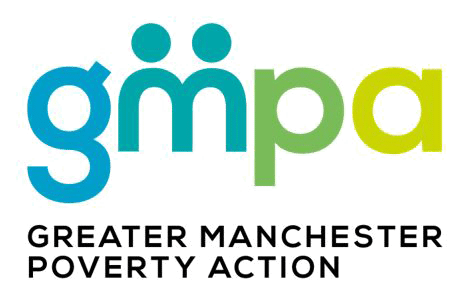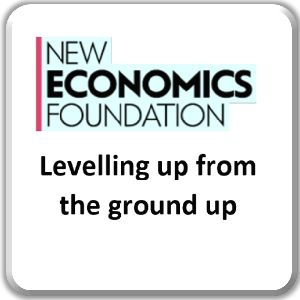by Rose Grayston, a Senior Programme Manager at the New Economics Foundation
The ‘levelling up’ agenda is frequently discussed by politicians, policy makers and public commentators, particularly in the context of economic recovery from the Covid-19 pandemic. But what does ‘levelling up’ actually mean? A report published by the New Economics Foundation argues that ‘levelling up’ must mean investment in both people and place, and the creation of initiatives that are guided by the needs of communities, with community ownership at the heart of regeneration.
Depending on where you live in England, there can be huge differences in your quality of life. This is down to some areas’ economic decline and low incomes, but also poor urban planning and underinvestment in social infrastructure. This government has made ‘levelling up’ deprived areas a central part of this mission, but we haven’t yet seen any concrete plans for how they are going to do this.
The final report of the No Place Left Behind Commission into Prosperity and Placemaking has been launched. It’s the culmination of more than a year of work, which the New Economics Foundation (NEF) contributed to, exploring the role of place – the built and natural environment – in this government’s levelling up agenda, through the perspective of community-led projects to transform homes, high streets, parks and streets across the country.
At 270 pages, the report is packed with evidence and policy proposals on how to improve so-called ‘left behind’ neighbourhoods and enable local people to thrive. But in essence, the Commission’s messages are simple:
• We don’t have to choose between investing in people or in place. We need both to support the country’s most deprived communities to recover from the pandemic, 11 years of austerity, and decades of economic and political neglect.
• Communities themselves must be at the heart of this government’s levelling up plans. Only they know what makes their place special, what their community needs to make the most of itself, and how to reach the people and the places that get missed out by top-down regeneration schemes.
• Community ownership of buildings and spaces must be the glue that makes new levelling up investment stick. If the community owns its homes, shops, parks and other buildings, then local people will always have affordable and tailored places to live, work, create and gather.
For people to feel they belong, there must be something to belong to. For so many places around the country, the community doesn’t have a college, a community centre, or a single public place where neighbours can come together to discuss shared challenges and organise shared solutions. But the report also shows the difference made to people’s lives when basic social and community infrastructure is rebuilt from the ground up:
• The Good Things Collective CIC in Morecambe are working to transform an empty and neglected building in local authority ownership into a community hub, enabling and showcasing local people’s businesses and creativity with bookable storage space, equipment, training rooms and workspaces.
• Arches Local in Chatham have used their Big Local funding to paint murals, plant trees, provide meals and activities to local children, and inspire the community around a new Neighbourhood Plan to guide development in the ways residents want to see.
• Hastings Commons have created an enclave of community-owned assets in the White Rock neighbourhood, demonstrating what can be done when homes, workspaces, parks and even caves are owned and managed in the community’s interest.
The only way for the government to achieve its levelling up aims is for it to transfer ownership of buildings and public spaces to community-led and owned bodies on a mass scale. The report backs the campaign for a £2bn Community Wealth Fund and recommends new grant funding, powers for local authorities to pass on low-cost borrowing to community groups, powers for civic groups to purchase land and assets at fair values – plus a raft of other improvements across taxation, planning, transport, housing and more.
This breadth of political hues hasn’t prevented the commission from recommending big, bold ideas: a one-off transfer of local government debt onto the national balance sheet, a £1.3bn fund to turn run-down homes for sale on the market into not-for-profit ownership, and a community right to buy registered assets of community value at an independently assessed fair value, to name a few. Read more from NEF here.





